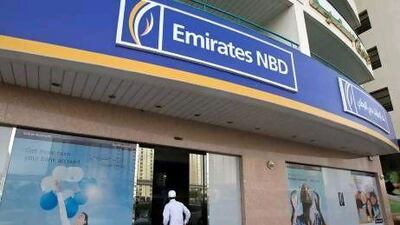The devil, as ever, is in the details. Dubai's US$1.5 billion (Dh5.51bn) sukuk issue last week set a benchmark for issuers in the Gulf region, and was lapped up by a fixed-interest market eager to take part in the emirate's economic recovery.
But, judging by the 135-page prospectus that potential investors were required to peruse before they made their decisions, it was not plain sailing all the way to the three times over-subscription the issue eventually commanded.
Deutsche Bank and other advisers to the sukuk must have burned the midnight oil on many occasions as they prepared a watertight case for Dubai's creditworthiness.
These documents, rightly, always flag up the risks inherent in any bond issue high up the priorities, and the nine pages of risks attached to Dubai, the UAE and the region are, for the main part, all the things you'd expect: general political and economic issues such as Dubai's dependence on foreign labour, its reliance on the oil-fuelled economic well-being of the UAE, and its exposure to current regional political instability, that is, the Arab Spring.
In addition, the prospectus highlights the repercussions of the global financial crisis, which the emirate's banks are still trying to work through. Thanks partly to timely action by the Dubai and UAE authorities, the financial situation has improved, but "there is no guarantee such improvement will continue in the future and any future shortage of liquidity in the UAE and Dubai financial markets could have an adverse effect on the Government", the prospectus says.
In particular, the document points to the Dubai Financial Support Fund (DFSF) as a possible cause for concern. This was the body set up in 2009 at the height of the Dubai World crisis, with money borrowed from Abu Dhabi, to underpin some of Dubai's troubled government-related enterprises. That money, of course, is expected to be repaid to the DFSF and ultimately to Abu Dhabi.
However, the document says "no assurance can be given that all entities supported by the DFSF will be able to repay their support in a timely manner". That seems to be a clear warning that the Dubai World restructuring, effective though it was in resolving the 2009-2010 crisis, may not be the final word on the matter.
Neither is it apparent from the sukuk prospectus that Dubai has yet put in place a clear economic and financial strategy for the long term. In 2007, just before the financial hurricane hit global markets, the Dubai Strategic Plan 2015 was proudly announced. It was based on a projected 13 per cent annual increase in GDP.
Clearly, that figure is now unattainable, and while the main features of economic strategy remain unchanged (essentially a focus on the "three Ts" - trade, transport and tourism), no final road map has yet been produced. "The Government is currently reassessing the stated aims of the 2015 plan in the area of economic development," the prospectus says. A medium-term economic plan is being prepared to replace the over-ambitious 2015 strategy.
Essentially, that plan will have to square the circle of a buoyant economy in the context of an uncertain financial background. Dubai will have to start living within its means.
The prospectus puts the predicament in context. Real GDP in 2010 (the last year for which figures are available from the Dubai Statistics Centre) amounted to Dh293bn, or about 30 per cent of total UAE output. That is an improvement on 2009, leaving Dubai about where it was in 2008. The "three Ts" are doing their job for the emirate's economy.
But the financial picture is mixed. The prospectus says that the emirate, like the UAE, is overbanked, although most banks remain profitable. Of the local institutions, Emirates NBD is by far the biggest, with assets of Dh284bn. They are well capitalised, but liquidity remains a potential issue.
The real problem remains the legacy of debt. The prospectus gives total direct indebtedness as Dh113bn, but this does not include financial obligations that may arise from big government-related corporations.
The big question - which the prospectus does not attempt to answer - is the level of total liabilities potentially pertaining to the Government of Dubai. That level of detail, regrettably, is missing.
twitter: Follow and share our breaking business news. Follow us

